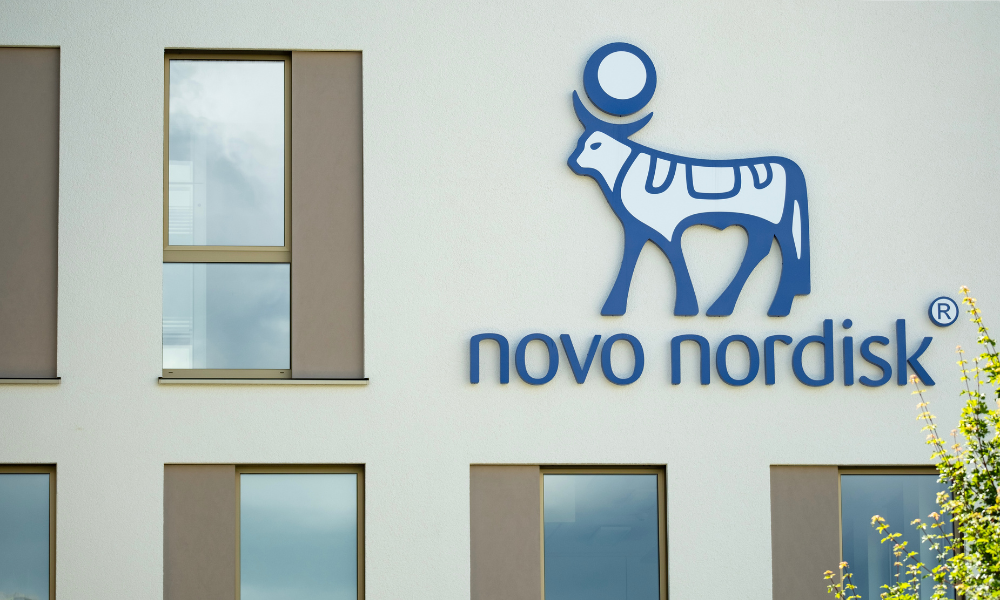Shares plunge 23% after Novo warns of unlawful compounding and intensifies legal action in US

Novo Nordisk blamed increasing use of compounded copycat drugs and rising competition—especially in the United States—for slashing its 2025 sales and profit forecasts, prompting a sharp 23 percent drop in its share price on Tuesday.
As reported by Financial Times, the Danish drugmaker said the updated outlook “reflects the persistent use of compounded [drugs], slower than expected market expansion and competition,” particularly in the US market for its flagship weight-loss drug Wegovy.
According to CBS News, Novo Nordisk also warned that patients remain at risk from “knockoff ‘semaglutide’ drugs made with illicit or inauthentic foreign active pharmaceutical ingredients.”
The company now expects 2025 sales growth between 8 and 14 percent, down from its May forecast of 13 to 21 percent, and lowered its operating profit forecast from a previous 16 to 24 percent range to 10 to 16 percent, as reported by Yahoo Finance.
It also noted weaker-than-expected uptake for Ozempic in the US diabetes market and Wegovy in selected international markets.
Despite this revised guidance, global sales for the first half of the year rose 18 percent, and operating profit increased by 29 percent, as per Financial Times.
Still, investor confidence dropped sharply.
By market close Tuesday, shares were down 23.1 percent, erasing over $70bn in value, with an additional 6.3 percent drop on Wednesday, according to Reuters.
The company said compounded drugs—unauthorised versions made by pharmacies—have continued to undercut branded prescriptions, even though the US Food and Drug Administration ended its temporary compounding allowance earlier this year.
In its statement, Novo Nordisk said, “multiple entities continue to market and sell compounded [drugs] under the false guise of ‘personalisation’,” a trend the company argues has negatively affected its performance in key markets.
Novo stated it is intensifying legal efforts to curb this trend and “protect patients from copycat drugs.”
In June, the company ended its partnership with telehealth firm Hims & Hers Health, alleging it was selling fake versions of Wegovy.
As reported by CBS News, Hims & Hers responded by accusing Novo Nordisk of misleading the public and said it would not be “strong-armed by any pharmaceutical company’s anti-competitive demands.”
Investor and analyst reactions highlighted concerns over the company’s commercial positioning.
Barclays downgraded Novo’s stock to “equal-weight” from “overweight,” while Bank of America downgraded it to “neutral” from “buy,” as reported by Reuters.
Barclays analyst Emily Field said, “This has really become a severe credibility issue,” adding that “they don’t view the issues that they have as severely as the market does.”
Novo Nordisk also named a new CEO on Tuesday—Maziar Mike Doustdar, a 30-year company veteran who will take over on August 7.
Doustdar, currently the executive vice president of international operations, succeeds Lars Fruergaard Jørgensen, who was ousted in May following sustained share price declines.
As per Financial Times, Doustdar will be the first non-Dane to lead the company.
He is expected to prioritise faster action and improved “commercial execution,” but did not present a new strategy.
On a call with investors, he said, “We are having a fantastic growth right now with Wegovy.”
Novo launched Wegovy more than two years before rival Eli Lilly’s Zepbound, but as Reuters reported, Zepbound prescriptions surpassed Wegovy’s by more than 100,000 per week earlier this year.
Eli Lilly’s shares also dropped 5.6 percent on Tuesday, with investor concerns about a potential price war.
However, Evan Seigerman of BMO Capital Markets said, “Novo would be short-sighted to create a price war because then they are just going to destroy what of the [weight-loss] market they have left.”



